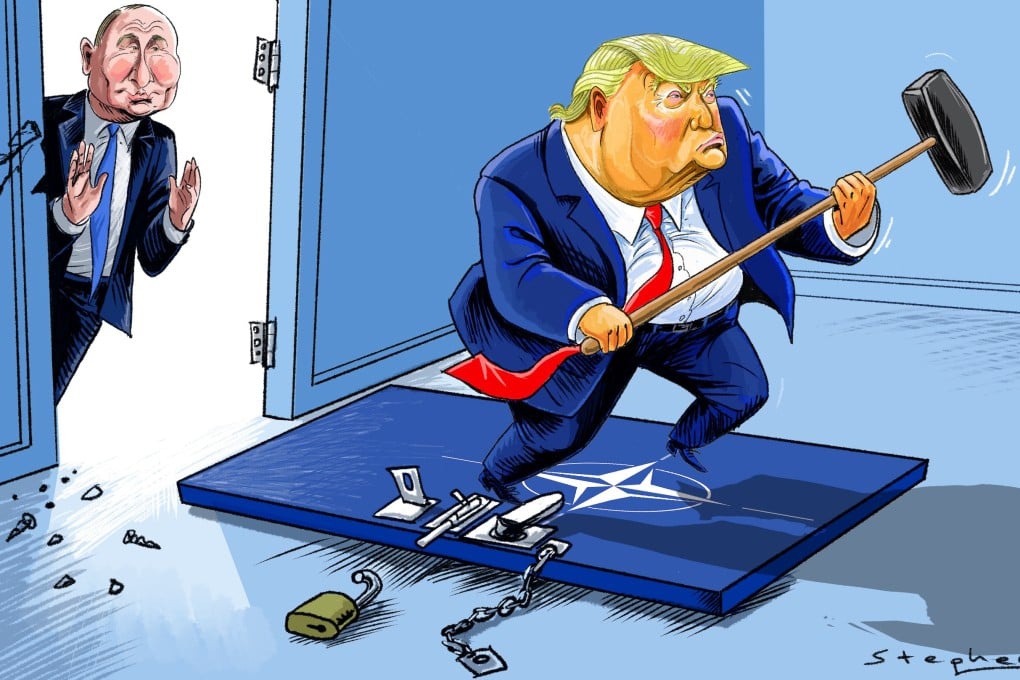Opinion | Trump’s Nato rant shows him up as a threat to Europe’s security
- While previous US leaders have at times expressed frustration with the alliance, they also regularly affirmed their commitment to Nato and its pledge of collective defence
- Not so Trump, who neither cares for Nato nor understands that deterrence won’t work if a key member cannot be trusted to enforce the line

However, let’s not forget how successful Nato has been in maintaining peace on its members’ territories, and how important unity and an unconditional commitment to each other have been to make this happen.
Without the US, there is no Nato and probably no peace. During the Cold War, Nato was a bulwark against the omnipresent Soviet threat on the European continent and elsewhere. The Soviet expansionist fantasies that had been successful in various other places around the globe were never able to get a strong foothold within Europe, thanks to Article 5 – collective defence.
But founding Nato was not a selfless act by Washington. Rather, it was a strategic decision. American leaders realised that a largely peaceful European continent, and one without Marxist ideology, would be key to America’s prosperity. Conversely, instability, with their intertwined economies, would be counterproductive to American interests.
.jpeg?itok=HjPEnbzk&v=1747124063)